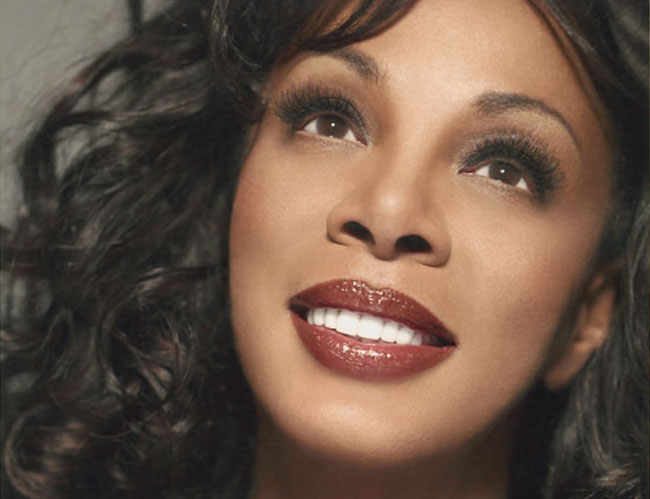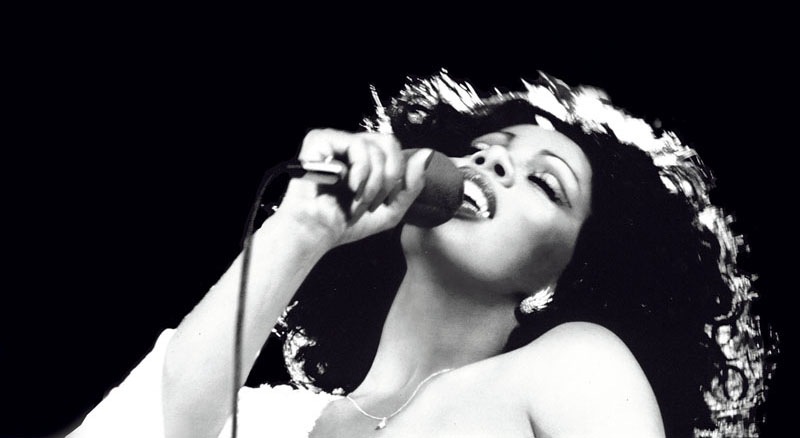
The year was 2008 and Donna Summer was touring behind Crayons, her 17th, and what turned out to be final, studio album. It was her first recording of original material since 1991’s Mistaken Identity. I agreed to an interview with Summer because who is going to say no to chatting with a bona fide legend (and unbeknownst to the world, someone who would be inducted into the Rock and Roll Hall of Fame in 2013)?
The Boston native wound up dying at the age of 63 from lung cancer on May 17, 2012, at her home in Naples, FL, despite being a nonsmoker. Five dates into the Crayons tour, Summer was on the road to play a gig at Bethel Woods, NY. During the conversation, she lovingly spoke about her three kids, the new album, and her thoughts on American Idol. Little did she know that a musical about her life would be playing on Broadway a decade later.
This conversation was never published until now.
LIW: Why so long between records?
Donna Summer: I was raising my kids and a good bit of news—my youngest daughter just put her 4-song EP out [Johnnyswim]. She debuted it last night in Nashville. So you can go to my website and there is a link to her website. The name of her band is Johnnyswim and she and her boyfriend have a band together and they’re incredibly good. It’s gotten amazing reviews and it’s really good. I’m really excited. That’s what I’ve been doing. Raising my kids (laughs).
LIW: Congratulations. I understand your other daughters are also in the industry.
DS: Thank you. And my other daughter is an actress out in Hollywood and she’s been on a show called My Wife and Kids, that’s been on for two seasons. She’s getting ready to do a new show called Revolution on the Sci-Fi Channel. Everybody is bubbling along. My oldest daughter Mimi is married with three kids and she’s still writing songs and working on her career. So everybody is in the business somehow.
 LIW: Talk to me about Crayons. It seems to be all over the place and I mean that in the best sense of the word.
LIW: Talk to me about Crayons. It seems to be all over the place and I mean that in the best sense of the word.
DS: It’s supposed to represent as many colors as I could possibly get out. The criteria for the album was that no two songs should seem alike. The record company was nervous in the beginning, but after they started hearing the material, they started getting extremely excited and then it became a really pleasant experience.
LIW: “I’m a Fire,” you’re singing in Spanish. “Drivin’ Down Brazil” has that samba flair. I was really intrigued by “Fame (The Game).” Tell me about that.
DS: Some of the words are autobiographical and looking at what’s been going on with Britney Spears, Whitney [Houston] and a lot of these other kids that are out there who have really lost their sense of direction in life. We’ve incorporated that song into our set and it’s really great on stage. I think it gets the point across. A lot of people are busy trying to be famous and they don’t understand what the animal of fame actually is. I call it an animal because it can be brutal.
LIW: How do you explain your longevity versus so many disco artists? You are the one gold standard where you have a career arc that is continuing to this day versus so many artists, be they bands or singers, who might get one or two hits tops if they’re lucky. Next thing you know they end up on a disco oldies revue.
DS: I think I planned at a very early age that this was my life and career. I don’t look at it as a passing phase for myself. Like you know, it doesn’t mean there won’t be ups and downs. Frank Sinatra was successful every year of his life but I think it’s the long-term perspective on a career that makes it a career. If you’re going to have a shot at something, you can’t do it once or twice and then bail out. That’s not a career. I never bailed out of my career. When I wasn’t recording, I was performing. Thankfully, I had a very large [fan base] and they’ve been very loyal, so I’ve been able to perform on a very high level for a very long time. That’s been very good for me, but that is something that I established early on in my career. So I think a lot of artists don’t establish themselves as performing acts. I think I managed to do both of those things through the tutelage of Neil Bogart. He was very adamant that I be recognized as a real person who could really perform like a Frank Sinatra and he thought that would bring me the longevity. And he was right. There is a lot of truth in that.
LIW: Your ability and willingness to adapt has allowed you to have a third, fourth and fifth act.
DS: Well, I’ve been around a long time (laughs). Like the song goes, ‘I’ve been knocked down and I’ve gotten up every time.’ Life and your career sometimes knocks you down and sometimes other things come along and derail you. Life is a spiral and you just keep moving. I try not to spend a lot of time looking back. I find that looking back over the years hinders you from moving forward. I just try to lick my wounds and keep moving.

LIW: When did you know that you made it?
DS: I know that I’ve succeeded at a certain amount of things. I think when I stood there and received the Oscar for ‘Last Dance,’ that was a turning point for me and a sign of recognition. When I’ve won certain Grammys. The one that I wanted to win was the rock and roll Grammy because my goal is to win a Grammy in every category and to establish that it is not just about the song. We categorize the person that if they sing something once, then that is what they do and that’s not right. People have to be singers, especially singer-songwriters, have to be free to explore all kinds of music, otherwise it’s like being a painter and having someone say you can only paint one way. I’m a certain age and people [react to the fact] that I’m still singing like it’s a surprise. Did Picasso stop painting at the age of 35? Am I missing something here? Did Grandma Moses stop? Did Georgia O’Keefe stop? As far as I know, you can be creative the rest of your life.
LIW: How did a nice girl from Boston end up in Nashville?
DS: It’s really funny, but when I was a little kid, I used to yodel. I used to watch a lot of country music shows and things with Roy Rogers and Dale Evans. They would yodel and I learned how to do it by watching them. So I’ve always had this little country thing going on in me. Not to mention the fact that I studied agriculture in high school when I was a young person, which is unusual for a girl from Boston. But I am an oxymoron. Everything doesn’t make sense that comprises me, but it makes sense.
I’m in Nashville because I love it there and it’s a good life. It’s a very docile community with a lot of passion for what I love—music. There are incredible songwriters here. People are friendly and nice and they’re not all caught up in fame. People are running around in their jeans and pickup trucks. They have money but it’s not about the money, it’s about the people I love. It’s just a different mindset. A lot of people are moving there. Nicole Kidman, Sheryl Crow and quite a lot of other people live there.
LIW: What is one thing people would be surprised to learn about Donna Summer?
DS: That I like to garden. I’m a gardener. I love flowers. My husband teases me and says my people love flowers. I think that would probably something they don’t know.
 LIW: What’s your favorite flower?
LIW: What’s your favorite flower?
DS: I have a lot of favorite flowers, but one of them is a peony. I love peonies and holly hocks. I love almost every flower. I even like weeds if they’re pretty. Pretty much anything growing out of somewhere that it’s not supposed to be is a weed. If something is growing out of where it’s supposed to grow, it’s not a weed, it’s a flower.
LIW: Biggest difference that you find in the music industry now versus when you started out.
DS: Music is easier to get now. I don’t think that you necessarily need a record company to be successful nowadays, especially if you are wise enough to figure out how to market yourself. All the record company does is allot you possibilities. It’s like taking a master loan out and giving up your life until you can pay that loan back. If you can avoid that, you can record your own album, put it on iTunes, promote it yourself and go out and work your record. You can technically be successful without [a label deal]. You can be like The Blair Witch Project. You can make millions of dollars under the radar and nobody knows it. I think that there’s a great and unbelievable possibility to be successful today that didn’t exist [before].
Then you have things like American Idol and all these other talent shows on television, which I think is going to run thin because people are going to get tired of looking at that. But at the moment, they’re happy and they like it. I think that’s a good thing because it exposes people to the rigors of success and what it really takes to be successful. And if you don’t have the stuff, you can’t do it.
LIW: You were recently on American Idol for the second time. What was that like?
DS: It was the finale this time and I really enjoyed it. The girls that were on the show this time around rallied and were there until the end. They sang a lot of my songs. It was just great. It’s great to see this new crop of talented kids that have really got it. They’ve got it going on and it’s not gimmicky. If you don’t have it, you ain’t going to be on the show. They work you so hard on that show and I know what it’s like. It’s almost brutal, but they really get an education in success on that show. I like it.


















